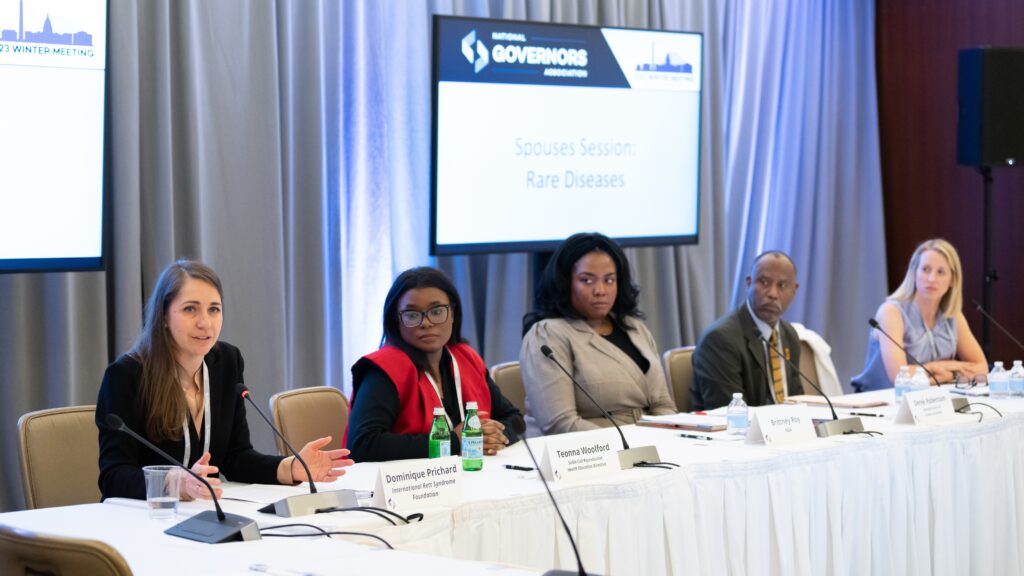Working together can improve outcomes for patients with rare diseases and promote better overall public health.
Despite their name, when considered altogether, rare diseases are not that rare. They affect 25 to 30 million Americans and have an extensive impact on public health policy and delivery. There are more than 7,000 rare diseases, including Cystic Fibrosis, Huntington’s Disease, Meningitis, Sickle Cell Disease, Juvenile Pilocytic Astrocytoma and all pediatric cancers. In the U.S., conditions are categorized as “rare” if they each affect less than 200,000 people. Many of these diseases are serious or life-threatening; studies estimate half affect children, adolescents and young adults, and 72 percent are genetic conditions. On average, a person living with a rare disease may face health care costs between $4,000-$140,000 depending on the condition and their insurance coverage.
Given the small population of those with an individual rare disease, patients can often face barriers accessing appropriate care. Patients frequently encounter providers who know little about their condition, limited care options and high treatment costs. Additionally, receiving a correct diagnosis can take an average of five years.
The Orphan Drug Act of 1983 (ODA) was created to incentivize pharmaceutical companies to develop treatments for rare diseases. Since 1983, the Food and Drug Administration has approved over 550 unique drugs and biologics for more than 1,1100 rare diseases, compared with just ten orphan drug approvals in the decade before passage of the ODA. Significant progress has been made in identifying and treating rare diseases, but given the scientific complexity and challenges with drug development, most rare conditions do not have approved treatments.
Enhanced newborn screening and affordable genetic testing can lead to an earlier diagnosis and quicker treatment for some genetic diseases. According to the CDC, through newborn screening programs, each year more than 13,000 newborn babies are identified with conditions such as sickle cell disease and cystic fibrosis. Early intervention for these and other diseases, including those with a fast disease progression, is critical to change their course and enhance quality of life for those with rare diseases and their families. Early intervention is also linked to reduced costs for the health system. Although the federal government recommends screening for 35 conditions, states have the power to regulate their newborn screening program’s screening options, the diseases that are screened and how funding is allocated. For example, Idaho screens for all federally recommended conditions and several secondary conditions, has a newborn screening advisory committee and funds ongoing actives of the program for sustainable impact.
Policies that aid in supporting rare disease patient engagement are also effective. There are more than 20 states with a rare disease advisory council (RDAC), an advisory body providing a platform for the rare disease community to have a stronger voice in state government. RDACs are made up of patients, caregivers, providers, insurers, biotech industry representatives, researchers, patient advocacy organizations and state government officials. This diverse group meets the needs of patients and families by providing recommendations to state leaders on critical issues. For example, the North Carolina RDAC worked with state leaders to expand newborn screening to include two additional disorders as of February 2023.

A recent discussion at the 2023 NGA Winter Meeting highlighted rare diseases, where attendees heard from experts with lived experiences. The panel included Derek Robertson from Maryland Sickle Cell Disease Association, Teonna Woolford from the Sickle Cell Reproductive Health Education Directive, Kristen Wheeden of the United Porphyrias Association, and Dr. Dominique Pichard from the International Rett Syndrome Foundation. The panel underscored that patients are often the experts when it comes to rare diseases, and their voices must be central in any rare disease policy or program.
Teonna Woolford, Co-founder and CEO of Sickle Cell Reproductive Health Education Directive, highlighted that her organization is the only Sickle Cell Disease (SCD) organization with a mission to support reproductive health. Teonna shared, “I am hopeful that the rare disease community will see significant advancements, particularly concerning high-quality sexual, maternal, and reproductive health care. Tackling reproductive health means addressing a disparity within a disparity. For women and men with SCD, the disparities are overwhelming. For pregnant women with SCD, the maternal mortality rate is 27 times higher than the national average. Currently, there are no FDA-approved treatments that have been proven safe to take during pregnancy or while breastfeeding. There is also no collective access to fertility services or genetic counseling. I am hopeful that collaborative efforts with patients, policymakers, researchers, caregivers, and providers will lead to further advancements for the rare disease community.”
As noted during Rare Disease Day 2023, the community’s long-term goals are “to achieve equitable access to diagnosis, treatment, health and social care and social opportunity for people affected by a rare disease.”
Addressing rare diseases requires a multifaceted approach involving collaboration between health care providers, researchers, policymakers, patients and families. Working together can improve outcomes for patients with rare diseases and promote better overall public health. Policy changes and general standardizations can do this by improving affordability and accessibility to quality health care, supporting treatment development, championing research efforts and ensuring the rare disease community is engaged in the progress of diagnosis and treatments.
This article was developed by Michelle LeBlanc, MPH, Senior Health Policy Analyst, National Governors Association. For more information on Governors’ health efforts please contact communications@nga.org.













